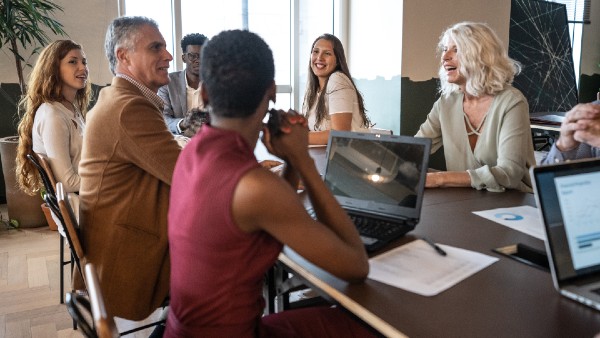Vice President of Europe’s largest Investment Bank, Bijna K. Dasani FRSA was recently named one of Management Today’s 35 women under 35 in business 2015. Despite her successes and growing profile within the financial services industry, Bijna is committed to creating positive social impact
It all started…
When I was studying for a degree at Leicester Business School and I applied for an internship at Credit Suisse. To my surprise I was accepted and relocated to work at their offices in Canary Wharf. It was a different environment from Leicester where I grew up. The experience enhanced my commercial awareness.
I graduated age 20 and applied to a grad programme at Goldman Sachs. After months of exams and interviews I was hired as one of 60 applicants (out of 6,000) globally. My first day at work was actually in Manhattan - my first time in the States - so it was hugely exciting.
Daily life
My work is very very diverse. I’ve had experience in over 30 countries across five continents, and recently I spent two years on Wall Street. It’s very enriching, as you meet such a variety of mindsets. I’ve done lots of different things; cost cutting exercises, creating teams in new locations or setting up new initiatives looking at regulatory implications for new rules, all those sorts of things. Initially it was all very overwhelming but my subliminal doubt soon turned into a sense of responsibility. My employers had obviously seen something in me that I couldn’t yet see and I felt a responsibility to honor that potential.
A male dominated industry
Of course it is, everybody knows it is. It’s well known, and there’s plenty of data to support this, that women hold only about 15-20% of senior leadership positions on average, in any industry, anywhere on the planet - it’s not just the banking sector that’s like this. Women are generally underrepresented, it’s not news. In my experience, most gender bias is subconscious and in demanding industries like financial services it will change when things change at home. Now that women in western countries have the opportunity (and are encouraged) to become as educated as men if not more, there is a natural rebalance of priorities at home evident - to enable women to pursue their careers. People are becoming more mindful and I think it will be a gradual transition.
Giving back
Before DB I worked at State Street and served on their corporate citizenship board in Europe. Their mandate was to give money to a local charitable cause - I formed a personal relationship and project to help the charity City Gateway. Personally, I’m interested in the economic empowerment of women and I noticed that they had a lot of single women on their books who didn’t speak English and had a history of domestic or emotional abuse, so I decided to put together a proposal for something different. My idea was to create a Beauty and Wellness Academy to help them gain qualifications, and empower them to become financially self sufficient. I pitched for the money and got £38,000 up front to start it up.
Fortunately, the Academy has been a great success; the women gain GCSEs in Maths and English and an NVQ in Beauty which enables them to become mobile beauticians if they want to or gain employment in the sector – it’s important that they have this option of becoming self-sustained. I’m still a patron but the Academy is completely self- sustaining now.
Global citizen
In the world today 5.5 billion people own mobile phones, but 4.5 billion also don’t have access to clean water and sanitation - something’s not quite right there. 22,000 children die of starvation daily (that’s the equivalent of the entire SevenOaks population in Kent). Women make up half of the world’s population, and in some countries 70% of the labour workforce, but on paper, own 1% of the world’s wealth. I’m currently supporting a global citizen conference at De Montfort University to look, not so much at the biggest issues, but at how incremental changes can accumulate and become something significant. It’s about how we can all be more mindful of the wider world and small actions we can take.
I’ve also helped establish and am leading a mentoring scheme at the university for business graduates who want to enter into investment banking.
Lessons learnt
I could write a whole book! Don’t be afraid to try things but take calculated risks. Adopt observation as a habit, ask questions and note reactions and responses and learn to emulate the ones that appeal to you. And try to learn from the mistakes of others as well as your own. Be open to having conversations and paying attention to the world around you. All of this can go into your toolkit for the future. There is so much to do, we must all make a start individually to make a significant difference collectively.
Related news
-
'Earth from Space, a Leadership Journey’ workshop
Interested in technoetic applications, peak performance, altered states, and new ways of motivating a sustainable approach? Book on for this free leadership workshop at RSA House, that includes a 30 minute multi-sensory virtual reality program.
-
Speed networking for arts and culture professionals
RSA Fellows are invited to attend a free one-hour random speed networking session for arts and culture professionals.
-
How Self-Managing Teams Could Save Social Care
On 10 March, the RSA Transform Programme Manager, Ruth Hannan will be speaking in Manchester about the UK health and social care system and how new emerging models of self-managing teams could drastically improve it.



Be the first to write a comment
Comments
Please login to post a comment or reply
Don't have an account? Click here to register.